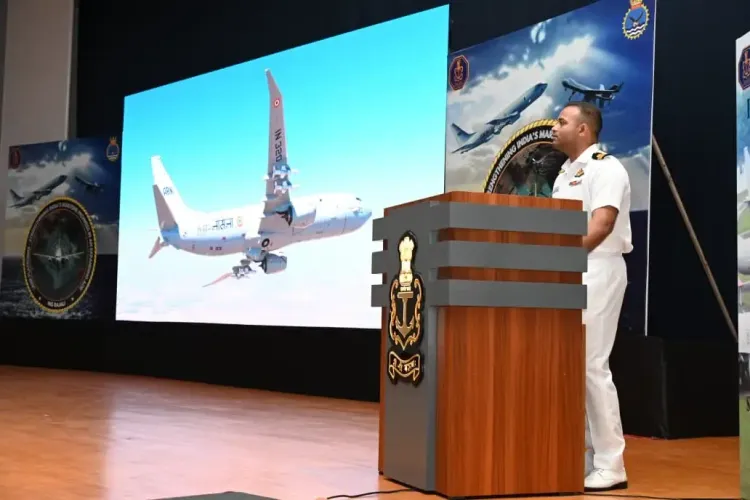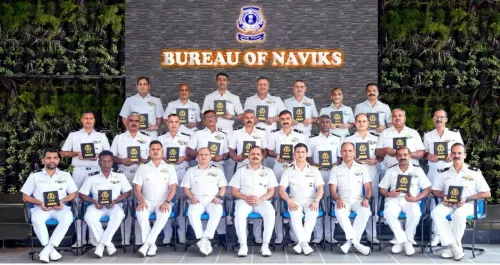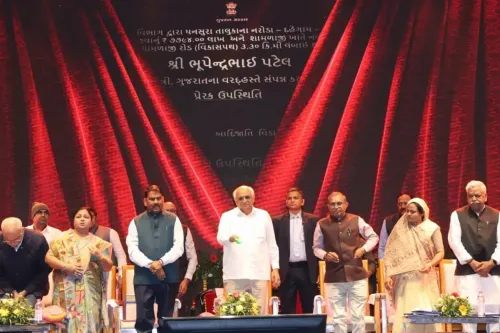Has the Indian Navy Achieved a Milestone with the Maritime Reconnaissance Seminar at INS Rajali?

Synopsis
Key Takeaways
- Two-day seminar on long-range maritime reconnaissance hosted by the Indian Navy.
- 50,000 flying hours achieved by INAS 312, a milestone in Indian Naval Aviation.
- Inaugurated by Rear Admiral Shantanu Jha.
- Focus on indigenous capabilities and global partnerships.
- Discussion on crucial platforms like P-8I and MQ-9B.
Chennai, Sep 17 (NationPress) The Indian Navy's Eastern Naval Command hosted a two-day seminar focused on long-range maritime reconnaissance (LRMR) at INS Rajali, Arakkonam, highlighting India's expanding maritime responsibilities and surveillance capabilities.
The event, which took place on September 16 and 17, gathered senior naval commanders, operational specialists, and representatives from Boeing Ltd to explore the evolving role of LRMR platforms in protecting India's interests throughout the Indian Ocean Region. The seminar was inaugurated by Rear Admiral Shantanu Jha, Chief Staff Officer (Operations) of the Eastern Naval Command, who served as the Chief Guest. During the proceedings, a compilation of scholarly articles on maritime surveillance was also unveiled.
This collection emphasized the operational importance of platforms like the P-8I aircraft and High Altitude Long Endurance (HALE) drones, including the MQ-9B Sea Guardian, in anti-submarine warfare and multi-domain reconnaissance.
A significant highlight of the event was the celebration of a remarkable achievement: the completion of 50,000 hours of flying by INAS 312, the Navy's foremost LRMR squadron, based at INS Rajali. This milestone marks a first in the history of Indian Naval Aviation and underscores the unit's vital role in ensuring constant vigilance over strategic waters.
Equipped with cutting-edge Boeing P8I aircraft, INAS 312 has played a crucial role in extending the Navy's operational reach, executing missions that range from tracking hostile submarines to safeguarding sea lanes essential for India's security and trade.
Rear Admiral Jha praised the squadron for its professionalism and contributions, noting that their efforts have significantly enhanced India's maritime domain awareness. Strategically situated on the eastern seaboard, INS Rajali has become the central hub for the Navy's long-range surveillance operations.
In addition to hosting the P8I fleet, it also utilizes MQ-9B Sea Guardian drones, equipping the Navy with a technological advantage for high-endurance operations in the vast Indian Ocean. These platforms enable the Navy to better address both traditional and emerging threats in a rapidly expanding area of responsibility.
The seminar mirrored the Navy's commitment to developing indigenous capabilities and collaborating with global defense leaders to reinforce India's position as a net security provider in the region. The discussions highlighted how surveillance technology, combined with operational expertise, continues to transform maritime power in an age of intricate security challenges.










